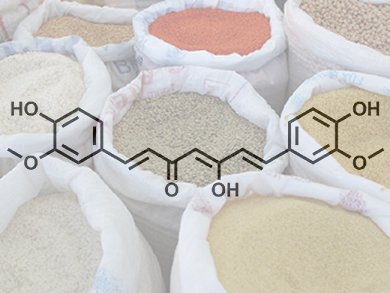Curcumin, a polyphenol derived from the South Asian spice turmeric, protects nerve cells from death. This compound may, thus, be beneficial in patients suffering from Alzheimer’s, a neurodegenerative disease. The delivery of curcumin to the brain, however, is challenging as this polyphenol does not cross the blood–brain barrier, a protective barrier surrounding the central nervous system.
To overcome this problem, Kailash Chand Gupta, CSIR – Indian Institute of Toxicology Research, Lucknow, India, and co-workers encapsulated curcumin inside biodegradable poly(lactic-co-glycolitic acid) nanoparticles (Cur-PLGA-NPs). Once administered to rats, the new nanoparticles easily crossed the blood–brain barrier, thereby accumulating in the rats’ brains. In addition, thanks to their ability to release curcumin in a slow and sustained manner, Cur-PLGA-NPs stimulated the generation of new neurons, ultimately improving cognitive functions and memory in a rat model of Alzheimer’s disease.
- Curcumin-Loaded Nanoparticles Potently Induce Adult Neurogenesis and Reverse Cognitive Deficits in Alzheimer’s Disease Model via Canonical Wnt/β-Catenin Pathway,
Shashi Kant Tiwari, Swati Agarwal, Brashket Seth, Anuradha Yadav, Saumya Nair, Priyanka Bhatnagar, Madhumita Karmakar, Manisha Kumari, Lalit Kumar Singh Chauhan, Devendra Kumar Patel, Vikas Srivastava, Dhirendra Singh, Shailendra Kumar Gupta, Anurag Tripathi, Rajnish Kumar Chaturvedi, Kailash Chand Gupta,
ACS Nano 2013.
DOI: 10.1021/nn405077y



